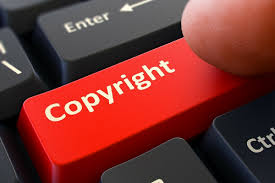Emoticons and other symbols are widely used on the internet and in social media to convey emotions through messages in posts. ‘Internet Memes’ are a new way of expressing emotions that has recently emerged. It is now critical to comprehend the legal implications of employing memes and the ownership rights associated with such works.
Memes on the internet (hence referred to as ‘Memes’) are widely utilized by netizens to communicate their thoughts and emotions in a hilarious manner. A meme is an image, a brief video, a bit of text, or something similar that is quickly circulated by a group of internet users, frequently with minor variations. It has become normal practice to share a meme with a small group of friends, coworkers, family members, and relatives.
The Indian Copyrights Act, 1957 protects memes as “artistic works,” which include paintings, sculptures, drawings (including diagrams, maps, and charts), engravings, photographs, works of architecture, and works of creative skill, as defined in section 2(c). Because the clause clarifies the inclusion of pictures (images) for protection under ‘art works,’ such a work may be considered infringement if copied or reproduced without permission, as defined in section 2 (m) (i) of the Copyright Act.
Memes may have been created by the “memer” using photographs or videos that are in the public domain, making them merely derivative works that generate from existing copyright material, or they may have been created by the “memer” using photographs that he/ she owns.
The latter has the potential to result in an infringement claim and is contingent on the validity of the photos utilized in the meme’s creation. As a result, if their work is utilized for commercial reasons without their authorization, a legitimate owner of a meme can always demand that the infringement stop using the meme and/or pay damages.
Despite taking all reasonable precautions, it is possible that an individual will inadvertently infringe on the owner’s rights. The doctrine of ‘fair dealing’ is invoked in this case. The copyright legislation that protects an original work does not apply to this notion. Section 52 (1) of the Copyrights Act provides certain acts or works that cannot be constituted as copyright infringement, which includes artistic, literary, dramatic, or musical work.
The determination as to whether or not a meme would qualify under ‘fair dealing’
- Purpose of Work
Memes are generally considered to be “recreational activities” and provide comic relief while expressing one’s ideas. Copyright infringement cases broadly deal with situations involving commercial benefits as opposed to recreational purposes. On the other hand, some social media accounts have derived economic benefits from these activities. In such cases, the possible situations of infringement may be taken into account if proper permissions are not sought.
- Nature of Copyright Work
A foremost criterion in the field of copyright is the existence of the ‘artistic works’ in the public domain. If the work in question has been available in the public domain for a very long time, and the memer has borrowed the same for the purpose of entertainment, he may take up the defense under the doctrine of fair usage.
- The effect of such use as a result
Memes were never intended to be used for profit. Regardless, over time, businesses and bloggers have begun to use memes to promote their content and achieve maximum advertising benefits. To avoid an incidence of infringement, approval from the owner of the original right is required before releasing it in the public domain.
- Amount of copyright work involved
Making use of insignificant portions or stills from a published, yet copyrighted work may not amount to infringement under copyright laws. There also exists a plethora of stock photographs and templates available for public use which would not amount to infringement if used for the purpose of a meme.
You can see a list of International IP firms here.
